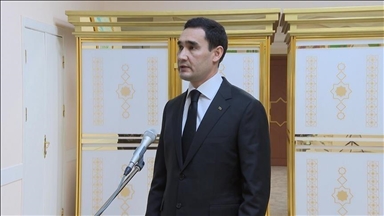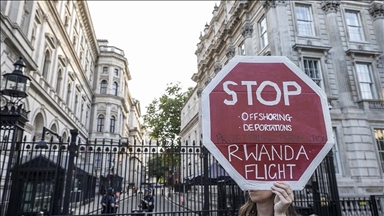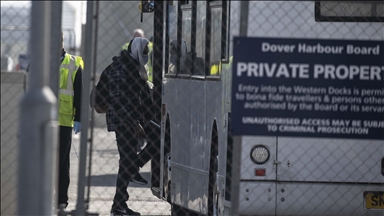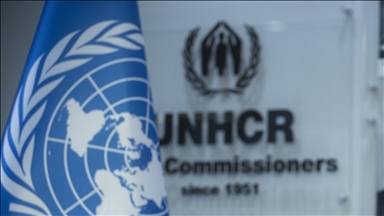Is racism rising in the UK? Debate heats up
Although Londoners call rising racism saddening, many say they believe immigration needs to be capped
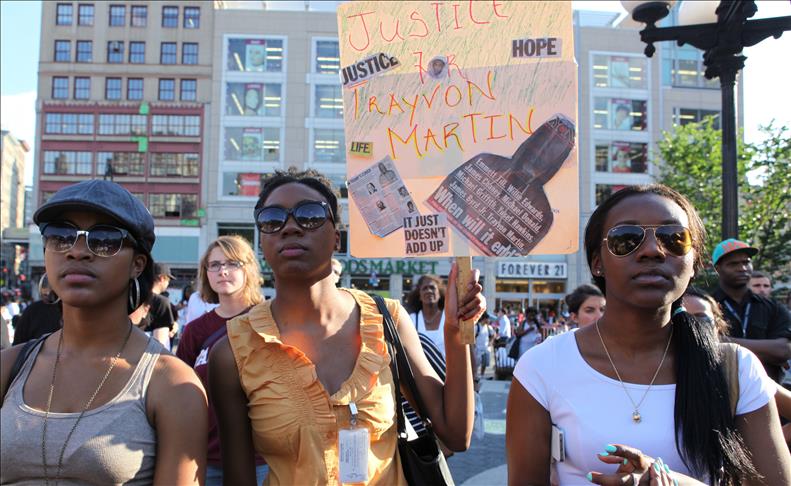
by Inci Gundag and Asli Aral
LONDON
An increase in support for the anti-immigrant, anti-EU U.K. Independence Party, both in voting for members of the European Parliament and in the local elections, has triggered debate in Britain about racism and immigration.
UKIP, as the U.K. Independence Party is commonly known, has claimed victory with 27 percent of the vote -- the most in the European Parliament election. But the party did a bit less well in the capital, London, where many immigrants live.
British Prime Minister David Cameron has stressed to European leaders that the turnout in the Parliamentary elections was only 34 percent in Britain.
Several Londoners who spoke to The Anadolu Agency did not vote in the parliamentary election, with many saying they were "not interested in politics".
The British Social Attitudes Survey revealed Wednesday that one in three people in Britain admit to being racially prejudiced, and the survey drew attention to growing racism in the country.
Londoners who called the growing racism "disappointing and sad" were divided about Britain's EU membership. Some said that they were not racist; but some others said bluntly that they were concerned about immigration.
Prime Minister David Cameron, the leader of Conservative Party, wants to hold a referendum on the U.K.'s 40-year EU membership if his party wins a majority in the May, 2015, general election.
Stuart Hall, a 56-year-old company director, told The Anadolu Agency that he voted for one of the "mainline" U.K. parties. He said most people "wanted a better Europe" and voted for UKIP "purely to kind of send a message to say we don't want to have Europe dictating too many rules."
But he said his own view was that the U.K. should pull out of the EU.
Hall said the reports of growing racism were sad.
"I can appreciate that some people feel like this is their country and keep it as their country," he said. "But if you look back over the whole of decade of ages, the U.K. is made of so many people from so many different societies and the world. We just need to learn to live together."
- "I am not a racist but..."
Grant Ashton, another voter, said he was happy his country was a member of the EU. He said he did not vote for any of the so-called Eurosceptic parties in the parliamentary elections, and said he was disappointed by reports of racism on the rise.
"I lived overseas and worked overseas," Ashton said. "I am a very happy European."
Richard Stickland, 48, a commercial director, said he chose not to vote in the parliamentary elections because he didn't "feel aligned with any of the people that were standing for the elections."
Some observers have linked the findings of the British Social Attitudes Survey's with UKIP's success.
"I can understand people's anxiety about that," Strickland said. "I am not a racist but I am looking at it and thinking our people voted with that in mind. That is a concern."
Geologist Ann Watkins, 53, also did not vote. But had she done so, she would have chosen the left-wing environmental Green Party, she said.
"I think there is a lot of ignorance," Watkins said regarding the reports of racism. "We don't know the conditions under which immigrants are coming to our country. I work with lots of people from different countries and I love it."
But she said the attitude of the government concerned her.
"I am just worried that they keep saying that we need more educated people," she said.
Steve Theadore, 42, who works in banking, said he would have voted for the Labour Party -- had he voted.
He said he didn't think racism was increasing.
"It depends on how you define racism," he said. "I think people are frustrated. I think immigration needs a target. So I don't think people necessarily are racist. There is basically a European Union where you can't really change the migration. And that makes up the majority of the migration.
The British Social Attitudes Survey, prepared by NatCen, an independent British social research institute, has been widely discussed since it was published Wednesday. NatCen's chief executive, Penny Young, called the findings "troubling."
Anadolu Agency website contains only a portion of the news stories offered to subscribers in the AA News Broadcasting System (HAS), and in summarized form. Please contact us for subscription options.


